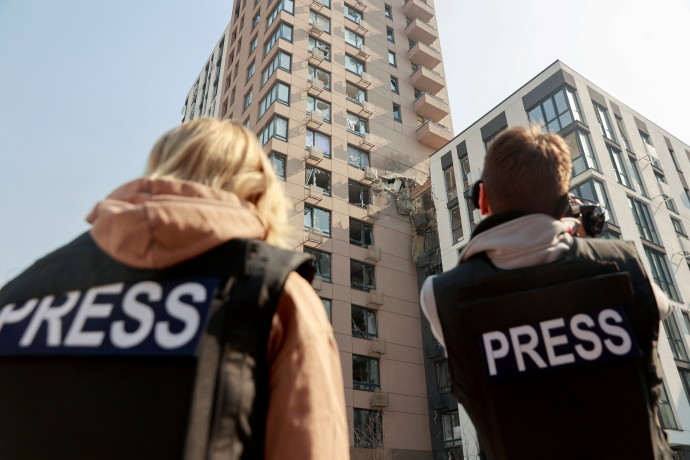Even before the full-scale invasion of Ukraine, Russia was preparing residents of Crimea for escalation by splitting Ukrainian society through propaganda in Russian media, Human rights activists and researchers said on June 6 during a press conference, where they presented a study about "Hate speech in online media covering events in Crimea."
Researchers analyzed 11 Russian-language online publications that wrote about Crimea, including RIA, KP, Realia, Russian Spring and others, from December 2020 to the end of May 2021.
"In the study, we recorded many calls for the extermination of Ukrainians in the Russian media. Given the atrocities of the Russian occupiers, which they have been committing on our land since February 24 and until today, these appeals had one goal - informational preparation for war crimes, crimes against humanity and genocide of the Ukrainian people, " said Crimean human rights group researcher Irina Sedova.
We recorded many calls for the extermination of Ukrainians in the Russian media
Irina Sedova
The search for materials was carried out with the help of keywords that express hatred for Ukrainians: "Bandera," "Little Russians," "pig-speaking," "Ukrofascists," "Khokhlovs," "Dill," "Khokhlostan" and others.
Researchers found 560 publications containing manifestations of hate speech. Said points of interest contained profanity, direct insults and dehumanization (for example, "these are not people, but animals".)

There were also calls for violence, the division of society on the principle of "us and them", disrespect and contempt for another group or culture.
On ten of the 11 sites selected for the study, the publications contained hate speech, particularly against Ukrainians and Crimean Tatars, as well as strong anti-American rhetoric.
“These media outlets use manipulative and covert hate speech to influence the audience's beliefs. This is done to avoid legal liability, which is provided by the legislation of many European countries," said expert psycholinguist Dr. Julia Krylova-Grek.
These media outlets use manipulative and covert hate speech to influence the audience's beliefs
Dr. Julia Krylova-Grek
"It has become possible to prove and substantiate the presence of psycholinguistic manipulations thanks to the psycholinguistic analysis of media text. In particular, manipulations are the violation of causation, the logic of coverage of events, the substitution of concepts in the materials," she added.
Russian media manipulation
Russian journalists have, in the past, consciously use methods and techniques that cause an emotional or sensory effect, while blocking areas of rational thinking, Krylova-Grek explained. The media often cover the situation one-sidedly and deliberately create a negative image.
Publications often methodically deny the state sovereignty of Ukraine and Ukrainian national identity. Yulia Krylova-Grek notes that such methods are intended to engrave in the minds of the audience the idea that Ukrainians are an ethnographic group of Russians, Ukraine is an artificial state entity, and the Ukrainian language is a regional dialect.
There are also phenomena like Banderophobia and Ukrainophobia, which act as "scarecrows" for readers of Russian-language content.
The researchers concluded by saying that the full-scale Russian invasion and tragic events currently taking place in Ukraine testify to the effectiveness of Russia's media influence and methods.
